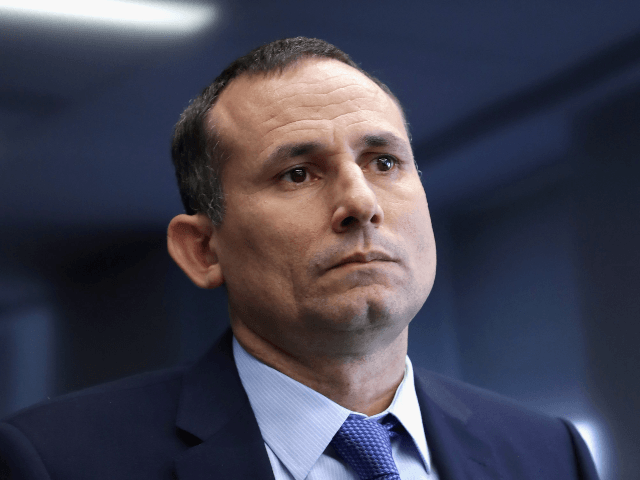Cuban dissidents reported on Friday that José Daniel Ferrer, the head of the Patriotic Union of Cuba (UNPACU), had been released after spending six months in prison without evidence of having committed a crime.
Ferrer was reportedly sentenced to four years under house arrest on charges of assault, for which no proof exist. He did not receive an opportunity to present any evidence regarding the charges.
UNPACU is believed to be Cuba’s largest dissident organization. Ferrer reportedly endured multiple forms of torture, including being forced to drink water with fecal material in it, while in prison. He disappeared in October after planning a nationwide protest on the feast day of Cuba’s patron saint, Our Lady of Charity, and was told he would receive a ruling on his case on March 12, but never did.
Subsequent breaking news updates on Friday confirmed that he had been convicted of assaulting someone at the late September protest before he disappeared. It is unclear who he was convicted of assaulting and no evidence exists of any acts of violence on Ferrer’s part at the alleged time.
Ferrer’s family has since reported that his physical health had deteriorated significantly behind bars.
The Cuban independent outlet Cubanet – whose journalist Roberto Quiñones Haces is also under arrest for reporting on the Castro regime’s human rights abuses – confirmed Ferrer’s release on Friday afternoon. It is not clear at press time why the Castro regime decided to free Ferrer, though it is likely a result of months of pressure from human rights groups and growing concern that the Chinese coronavirus pandemic will ravage the island’s population of tortured political prisoners.
Ferrer reportedly suffered from an ulcer before his arrest. On Thursday, wife Nelva Ismarays Ortega Tamayo, a doctor by trade, told Radio Martí that she found her husband significantly deteriorated healthwise upon her last visit to the prison in Santiago de Cuba, eastern Cuba, where authorities were holding him.
Ortega said she found Ferrer “in a small, cold, humid cell exposed to thousands of diseases but, above all, respiratory diseases and coronavirus.” Tamayo said the Cuban regime had reached out to her urging “cooperation” to find a way to release Ferrer, which she said she interpreted as frustration on the government’s part regarding how to silence Ferrer while also silencing global human rights activists.
Last week, José Daniel Ferrer Cantillo, the activist’s teenage son, told Cubanet that he found his father extremely frail during his most recent visit, estimating that Ferrer weighed about 150 pounds, significantly less than he did when entering prison and a dangerous weight for a someone as tall as Ferrer.
“He is unrecognizable, he looks very deteriorated, he has more heartburn, stomach pain, and his gastritis has worsened,” his son told the newspaper. “Despite the coronavirus, they keep my father in the same cell that he has described as humid and cold, that he has compared to a grave.”
The younger Ferrer has been detained on multiple occasions, sometimes with Ortega, her infant son, and Ferrer’s daughter, for demanding his father’s release. In February, Ferrer Cantillo said that Cuban government agents told him that he was arrested solely to send a message to his father: “if he leaves the country he would not be convicted.”
Cuba is struggling with a mounting number of coronavirus cases, at press time standing at 269 confirmed cases and six deaths. The true number of cases on the island is believed to be much higher as a result of the Castro regime’s poor response to the pandemic. Castro regime officials initially refused to close schools, demanding that parents send children to schools with soap and water, as the schools would not keep sanitary products in stock for the children to wash their hands. Parents complained that they had no access to soap or water, either, in Havana and other major population hubs due to communism-induced product shortages.
The Castro regime also initially announced to the world it would remain open for tourism, encouraging foreigners to plan trips to Cuba despite the first known cases of coronavirus on the island being Italian tourists. Havana ultimately relented and shut its borders after a global outcry.
Most nations’ officials have expressed concern that prisons – where people live in close quarters and sometimes fail to have access to basic hygienic goods – could be particularly vulnerable to the rapid spread of the highly contagious virus. Human rights groups have noted that Cuba is currently home to 128 convicted political prisoners, not counting the untold number of people behind bars for their political views who, like Ferrer, never received due process and were not convicted of any crime, even Cuba crimes like “disrespect,” commonly used to silence dissidents.
The Cuban Observatory for Human Rights (OCDH) warned on Thursday that Cuba may use the pandemic to increase repression of political dissidents, given growing public discontent with the handling of the crisis.
“We warn that the government of Cuba could be shielding itself about the pandemic situation by limiting even more freedom of expression and increasing repression,” the group said in a press release. The OCDH keeps a daily tally of arbitrary arrests against political dissidents in Cuba, publishing the results on a monthly basis.

COMMENTS
Please let us know if you're having issues with commenting.